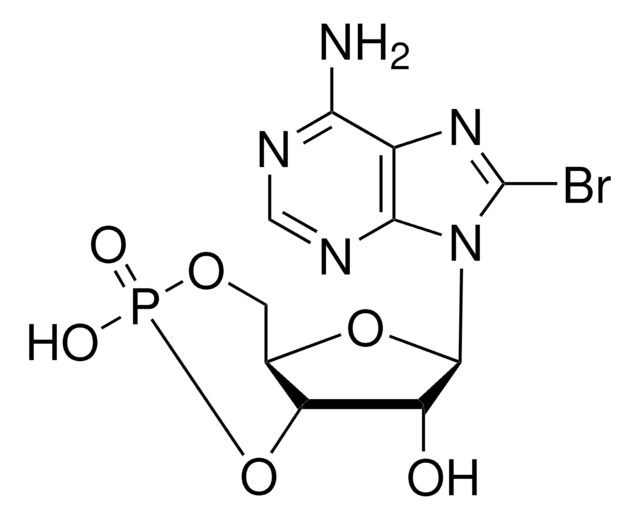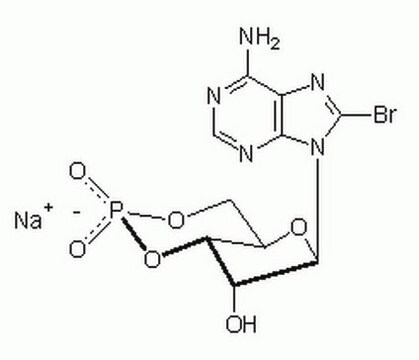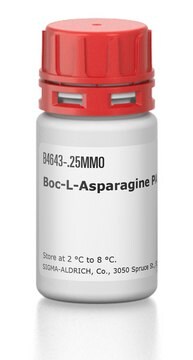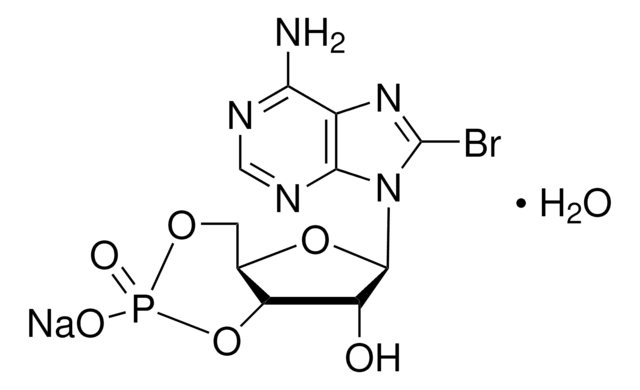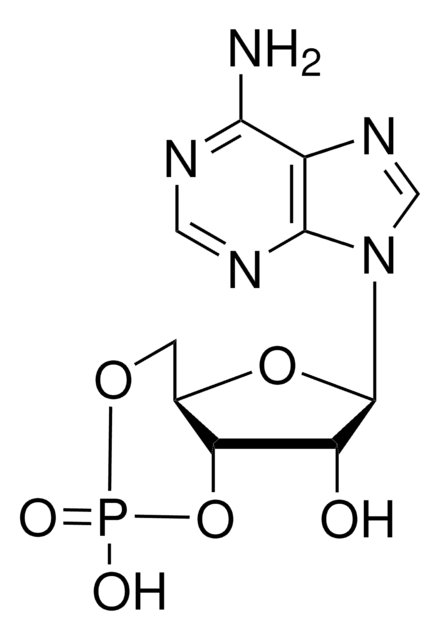B7880
8-Bromoadenosine 3′,5′-cyclic monophosphate sodium salt
≥97% (HPLC), powder
Synonym(s):
8-Br-cAMP
About This Item
Recommended Products
Quality Level
Assay
≥97% (HPLC)
form
powder
color
off-white
solubility
H2O: 100 mg/mL
storage temp.
−20°C
SMILES string
[Na+].Nc1ncnc2n([C@@H]3O[C@@H]4COP([O-])(=O)O[C@H]4[C@H]3O)c(Br)nc12
InChI
1S/C10H11BrN5O6P.Na/c11-10-15-4-7(12)13-2-14-8(4)16(10)9-5(17)6-3(21-9)1-20-23(18,19)22-6;/h2-3,5-6,9,17H,1H2,(H,18,19)(H2,12,13,14);/q;+1/p-1/t3-,5-,6-,9-;/m1./s1
InChI key
DMRMZQATXPQOTP-GWTDSMLYSA-M
Looking for similar products? Visit Product Comparison Guide
General description
Application
- to study its effect on fas and caspase-3 mRNA expression and on P4 production in bovine mid luteal cell culture
- used to treat choriocarcinoma BeWo cell line and study its effect on cell viability, apoptosis and morphological changes in the nuclei
- in superfusion medium for head kidneys stimulation
Biochem/physiol Actions
Features and Benefits
Other Notes
Caution
Storage Class Code
11 - Combustible Solids
WGK
WGK 3
Flash Point(F)
Not applicable
Flash Point(C)
Not applicable
Personal Protective Equipment
Certificates of Analysis (COA)
Search for Certificates of Analysis (COA) by entering the products Lot/Batch Number. Lot and Batch Numbers can be found on a product’s label following the words ‘Lot’ or ‘Batch’.
Already Own This Product?
Find documentation for the products that you have recently purchased in the Document Library.
Customers Also Viewed
Articles
Cyclic nucleotides, including cyclic AMP (cAMP), cyclic GMP (cGMP) and cyclic ADP-ribose, have been extensively studied as second messengers of intracellular events initiated by activation of GPCRs. cAMP modifies cell function in all eukaryotic cells, principally through the activation of cAMP-dependent protein kinase (PKA), but also through cAMP-gated ion channels and guanine nucleotide exchange factors directly activated by cAMP.
Our team of scientists has experience in all areas of research including Life Science, Material Science, Chemical Synthesis, Chromatography, Analytical and many others.
Contact Technical Service
